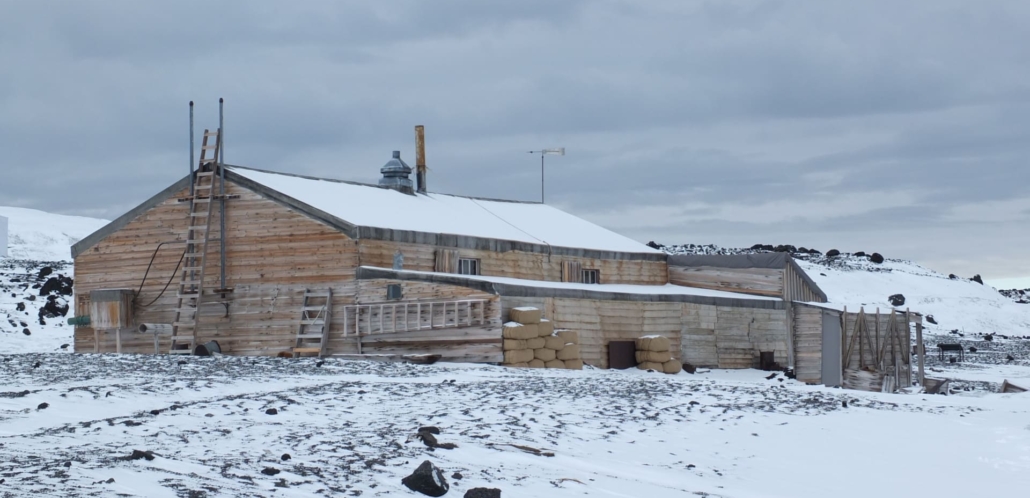Trust Launches Sustainability Framework
As part of its Strategic Plan review in 2024, the Trust has been working to define a new sustainability framework. A diverse range of stakeholders from the staff, Board, donors, alumni, partners, government and supporters took part in surveys and interviews about what they considered should be priorities for the Trust around sustainability.
As a result of this work, the Trust has clarified its top sustainability priorities:
- Effective heritage conservation management of the historic huts and artefact collections.
- Financially sustainable operations, which continue to leverage Crown funding and generate new income.
- Organisational sustainability, which includes good governance and leadership.
- Workforce sustainability with a focus on health, safety and wellbeing, culture, learning and development.
- Climate change transition and adaptation as we prepare for and take action to adapt to the impacts of the changing climate for historic huts.
- Stakeholder relationships are strong with our donors, government, supporters, partners and alumni.
- Sharing our stories globally for public outreach and engagement across diverse audiences.
- Inspiring the next generation of explorers and creating ambassadors through the Inspiring Explorers™ programme.
- Creating virtual access to the historic sites the Trust cares for (e.g. virtual reality).
- Focus on sustainable supply chain so we source our goods and services from ethical organisations.
- Mitigating the impacts of the carbon emissions of our programmes.
The new Sustainability Framework has now been published on the Trust’s website and details what the Trust has achieved to date and sets some targets for 2025 for the team to focus on.
Executive Director Francesca Eathorne says that it is an important piece of work for the Trust to undertake. “We have a broad mission to deliver and many exciting opportunities to engage with across our programmes. It is important to consider sustainability through multiple lens, be that financial, environmental or relevancy. This framework means we work with greater clarity around how we best use our people, resources and donor funds so that we continue to deliver our mahi (work) for the benefit of New Zealanders and the world, long into the future”.
Francesca notes she was very appreciative of the time the Trust’s community took to take part in surveys and interviews to share their thoughts. “We have a diverse and passionate community whose voice is important to us. We have a lot more to do in this space and look forward to continuously improving how we operate sustainably.”




